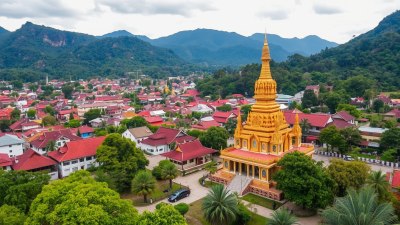Why the Journey Home Always Feels Ten Times Longer
Explore the psychological and emotional reasons behind why the journey home feels longer than going away.

Have you ever noticed that the journey home always seems to stretch out before you, elongating each minute into what feels like an eternity? This phenomenon is not merely a trick of perception; it is deeply rooted in psychological and emotional factors that shape our experiences. Understanding why travel home feels longer can add depth to our appreciation of journeys and enhance our travel experiences.
The Psychological Aspect of Travel
When embarking on a trip away from home, the anticipation often brings excitement and joy. Each moment is filled with potential and wonder, leading to a sense of time flying by. In contrast, the journey home is laced with emotions of longing and nostalgia, turning it into a reflective process. Psychological studies suggest that when we are emotionally invested in a situation, we tend to experience time differently. Exciting experiences create a sense of flow, while the return journey often evokes feelings of sadness or reluctance, which can distort our perception of time.
Time Dilation and Subjective Experience
Time dilation is a common factor linked to how we perceive time during different experiences. When engaged in enjoyable activities, our brains release dopamine, making us feel more alive and engaged, which can speed up our perception of time. Conversely, during a return journey, we may ruminate on the conclusion of a fun trip, which can slow our perception of time as we focus on less engaging aspects of travel, such as waiting, sitting in traffic, or watching the landscape fade away outside the window.
Anticipation vs. Reflection
On the way to a destination, there is an inherent excitement and anticipation that fuels our enthusiasm. Each mile brings us closer to new experiences, friendships, and adventures. In contrast, the return leg of a journey is filled with reflection and sometimes regret. We may think about the memories made, the people we met, and the moments we cherished, leading to a sense of loss. This emotional distance can amplify the duration of the trip in our perception, making it seem longer than it really is.
Physical Factors of Travel
Physical factors influence our travel experiences significantly. Whether it is the mode of transportation, the time of day, or unexpected delays, these elements can intensify or alleviate our perception of time. For example, long flights or road trips can be tedious, and with the end of an enjoyable experience approaching, discomfort can grow as we count down the minutes until we return to our routine lives.
Mindfulness and Being Present
Practicing mindfulness can alter how we perceive time during traveling. When we are fully engrossed in our surroundings, we absorb the details of our journey. Engaging in mindfulness techniques allows us to savor small moments, making them feel more significant and, paradoxically, allowing time to flow more evenly. Implementing these techniques while traveling home can create a sense of connection to the journey itself instead of just fixating on reaching the end.
Memory and Lasting Impressions
Another factor contributing to why the journey home feels longer relates to how memories are formed and recalled. The memories we create on our way to a destination are often vivid and significant, infused with novelty and excitement. When returning home, we may find ourselves mulling over these impactful experiences, which can create a lingering sensation of longing. The discrepancy between delightful memories and the mundanity of the journey back often alters our sense of time.
The Role of Environment
The environment during the return journey can also play a significant role in our perception of time. Traveling home during rush hour versus an empty road can drastically change how we perceive the journey. Banal, monotonous environments can exacerbate feelings of time expansion as our senses are under-stimulated. In contrast, vibrant landscapes or engaging activities during the trip can help combat this feeling.
Ending the Journey: Expectations vs. Reality
Our expectations play a critical role in shaping our experiences. After a period of excitement, returning home can feel like re-entering the grind of daily life. This abrupt switch can result in a feeling of time standing still, making the journey seem much longer. The disparity between the thrill of exploration and the impending return to reality heightens the perception of drudgery endured on the journey home.
Coping Mechanisms
To mitigate the sense of time dragging during the journey home, there are several coping mechanisms one can employ. Engaging with a good book, listening to music, or catching up with friends on social media can make the journey feel less burdensome. By focusing energy on positive distractions, we can manage our time perception effectively and significantly improve our travel experiences.
Planning for Future Trips
Understanding why journeys home seem longer can also help in planning better future trips. Recognizing the emotional impacts of travel may lead us to choose shorter return journeys, schedule stops along the way, or even opt for a different route to make the return trip more enjoyable. Integrating these insights into future travel plans can minimize the dreaded feelings experienced on the way home.
A Final Reflection
The feelings surrounding the return journey home are complex and multilayered. The intricate dance of psychological, environmental, and emotional factors creates a unique experience that shapes our perception of time. While we may never escape the phenomenon of feeling like the journey home stretches out infinitely, embracing these complexities can enhance our understanding of travels, emotions, and the way we experience the world around us. In essence, our journeys, whether outgoing or returning, are what we make them, and acknowledging the feelings behind travel can lead to richer, more fulfilling experiences.











